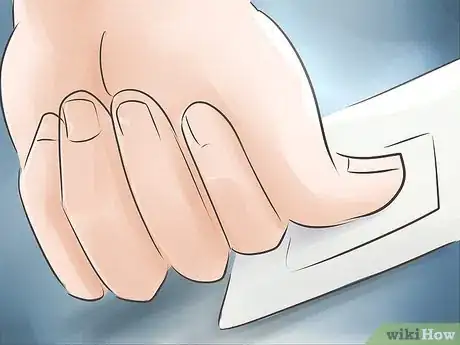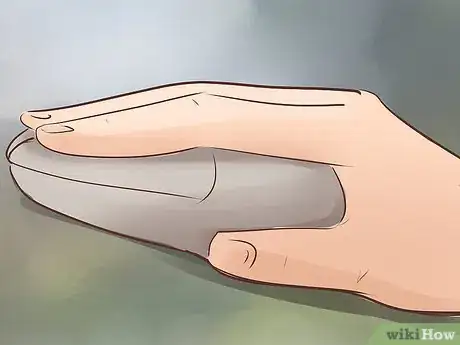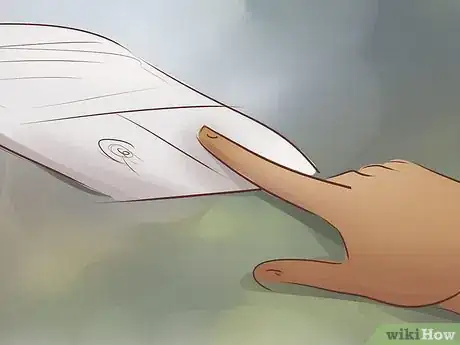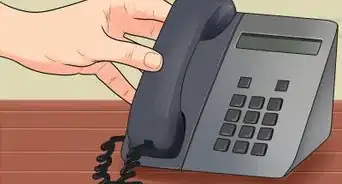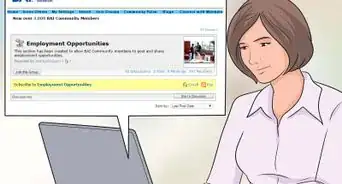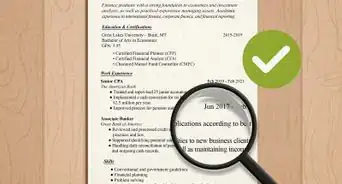This article was co-authored by wikiHow Staff. Our trained team of editors and researchers validate articles for accuracy and comprehensiveness. wikiHow's Content Management Team carefully monitors the work from our editorial staff to ensure that each article is backed by trusted research and meets our high quality standards.
There are 20 references cited in this article, which can be found at the bottom of the page.
This article has been viewed 65,363 times.
Learn more...
Insurance brokers act as independent agents who help clients find and purchase insurance policies. They offer clients options from many different insurance companies, rather than working exclusively with one insurance agency. Like many other states, Florida has a strong insurance market and becoming a licensed insurance broker can lead to a lucrative career.
Steps
Preparing for a Career as an Insurance Broker
-
1Identify opportunities in your area. Becoming an insurance broker is a time intensive process that will require hard work and money so making this career move is an investment.
- The U.S. Bureau of Labor Statistics projects that from 2014 to 2024 there will be 9% job growth for insurance brokers.[1]
- There are more than 200,000 people working in the insurance field in Florida, and metropolitan areas tend to have higher concentrations of brokers.[2]
- Look at job boards in your city or target work area to gauge the strength of the insurance job market.
-
2Complete the necessary education requirements. You must complete these formal educational requirements prior to becoming a licensed broker in Florida.
- You must receive your high school education to be an insurance broker in most states, including Florida.[3]
- A bachelor’s degree is not required, but having your degree makes you a more attractive candidate for employers.
- You are not required to have previous professional experience in insurance to apply to become a broker in Florida.
Advertisement -
3Decide what type of insurance you want to specialize in and sell. There are a number of different types of insurance that you can specialize in. In Florida, you are required to take specifically tailored pre-licensing coursework and a licensing exam in your chosen area for most specializations.
- Accident and Health. These policies protect individuals from the financial impact of unexpected medical bills, and different policies will cover different aspects of medical care.[4]
- Automobile. Automobile insurance policies cover motorized land vehicles. Coverage can include loss or damage to the vehicle, as well as vehicle-related injury protection.[5]
- Homeowners. This insurance covers damages and losses to personal residences. Many mortgage lenders require homeowners’ insurance as a requirement for mortgage terms.[6]
- Life. Life insurance provides death benefits to the survivors and beneficiaries of an individual’s policy.[7]
- Professional liability insurance. These policies offer coverage for professionals against loss, damage, and expenses incurred through negligence or error.[8]
- Flood. Flooding is a serious concern for many Floridians due to the state’s weather and geography. Flood insurance protects homes from damages and losses that are the result of floods. Like homeowners’ insurance, many mortgage lenders in Florida require flood insurance as a mortgage condition.[9]
Preparing and Applying for a License
-
1Find a pre-licensing exam course. Depending on your selected line of specialization, you may be required to complete a pre-licensing course.
- Use the Florida Division of Insurance Agent and Agency Services License Qualifications to determine whether your specialization requires a pre-licensing course.[10]
- Find a pre-licensing course in your area and determine the costs associated (course fees, study materials, etc.).[11]
- Pre-licensing courses are offered both online and in classroom settings. Some may require you to purchase course-specific materials and specialized study materials.
- Different pre-licensing courses vary in length and intensity, but expect to spend at least 40 hours in a course.
-
2Complete the pre-licensing course. If your specialization line requires a pre-license course, you will need to complete the course before applying for the Florida licensing exam.
- Submit proof that you took a pre-licensing course. For example, if you intend to pursue a license with a specialization in health insurance, you must complete a 40 hour course and submit proof that you have passed the course to be able to register for the licensing exam.[12]
-
3
-
4Study for the exam. Each Florida specialization exam will have different requirements and content and you will need to devote time to studying the material thoroughly.
- There are study books and online classes available to help you to study for your exam.
- Each exam is different and focuses on different areas within insurance. You can find general outlines for each exam through Pearson VUE. [15]
- Use the exam content guidelines to focus your studying. For example, if you intend to take the Florida Health & Life exam the test is 150 questions plus 15 pretest questions that will take you 2 hours and 45 minutes. The test will have questions relating to the types of life insurance policies available, types of health policies, and other related subjects.
-
5Take the licensing exam. In Florida, there are different licensing exams that are required for the different lines of insurance specialization.
- The Florida Bureau of Licensing offers an interactive online tool to help you identify the licensing you require based on the type of insurance you wish to work with.
- If you fail the licensing exam, you must re-register for another exam with Pearson VUE and take the exam again.
- If you pass the exam, you have one year to apply for a license with the Florida Department of Financial Services. If you do not apply within one year of your passing exam date, you must re-take the exam.
- You cannot take the exam more than five times in a twelve month period.
-
6Submit your fingerprints. You must be fingerprinted through MorphoTrust USA and your fingerprints must be sent electronically via LiveScan.[16]
- You must register and make a fingerprinting appointment through MorphoTrust USA.
- Fingerprinting will cost $45.80 USD plus any applicable local Florida county sales taxes.
- Your fingerprints will be used to conduct a fingerprint-based criminal history check and are submitted to the Florida Department of Financial Services.[17]
-
7Create a MyProfile. MyProfile is the Florida Department of Financial Services’ Bureau of Licensing online portal and once you pass the licensing exam, you need to register with the state.
- Apply for a Florida license through MyPortal.[18]
- You can only hold a resident license in one state at a time. If you are not yet a resident of Florida, you cannot apply for a Florida resident license until you surrender your old state license and move.
- Pay the license application fees. License applications are $50.
- Pay $5 for the license ID.
Working as an Insurance Broker in Florida
-
1Apply for an appointment. An appointment authorizes a broker to act as an agent of the insurer.
- Typically, brokers apply for appointments with more than one insurer so they can offer a variety of insurance options for their clients.
- To apply for an appointment in Florida you must use eappoint, an online portal.[19]
- Each appointment costs $60.
-
2Renew your license. You do not need to periodically renew your Florida agent and adjuster license but it will expire if you do not receive an appointment within 48 months.
- If your license expires because you fail to obtain an appointment within 48 months, you must begin the licensing process again.
-
3Take continuing education courses. Many insurance lines require brokers to complete continuing education courses.
- You are required to submit proof of your CE courses through MyProfile. Failure to do so may result in the loss of your insurance license.
- There is a $250 fine for failing to submit required CE course proof.
-
4Transfer your license if you leave Florida. If you move out of Florida, there are other states that will accept your Florida insurance license with full reciprocity.[20]
- Some states offer conditional reciprocity, while others offer no reciprocity at all.
Community Q&A
-
QuestionCan I earn my license through an online course?
 Community AnswerYes, but you will have to meet the requirements from the state to take the 220 exam.
Community AnswerYes, but you will have to meet the requirements from the state to take the 220 exam.
Warnings
- You must be 18 years of age to apply for a Florida license.⧼thumbs_response⧽
- You must be a United States citizen to apply.⧼thumbs_response⧽
- Felony convictions may bar you from becoming an insurance broker. Some felony convictions bar you permanently from ever applying, while others do not.⧼thumbs_response⧽
References
- ↑ http://www.bls.gov/ooh/Sales/Insurance-sales-agents.htm
- ↑ https://www.statista.com/statistics/429066/employment-in-insurance-sector-usa-by-state/
- ↑ http://learn.org/articles/Insurance_Broker_Become_an_Insurance_Broker_in_5_Steps.html
- ↑ http://www.floir.com/Sections/LandH/AccidentHealth/default.aspx
- ↑ http://www.floir.com/Sections/PandC/Automobile/default.aspx
- ↑ http://www.floir.com/Sections/PandC/Homeowners/default.aspx
- ↑ http://www.floir.com/Sections/PandC/Homeowners/default.aspx
- ↑ http://www.floir.com/Sections/PandC/ProfLiab/default.aspx
- ↑ http://www.floir.com/Sections/PandC/FloodInsurance/FloodInsurance.aspx
- ↑ https://www.myfloridacfo.com/division/agents/licensing
- ↑ https://dice.fldfs.com/public/pb_srch_adv.asp
- ↑ http://www.myfloridacfo.com/Division/Agents/Licensure/General/docs/2-40.htm
- ↑ https://www.asisvcs.com/publications/pdf/121000.pdf
- ↑ http://www.pearsonvue.com/fl/insurance/
- ↑ https://www.asisvcs.com/publications/pdf/121003.pdf
- ↑ https://fl.ibtfingerprint.com/?RESTART&DFSORI=DFS-1-FL921060Z
- ↑ https://www.myfloridacfo.com/division/agents/licensing/agents-and-adjusters/fingerprinting-information
- ↑ https://dice.fldfs.com/public/pb_index.aspx
- ↑ https://iportal.fldfs.com/eappoint/
- ↑ http://www.myfloridacfo.com/Division/Agents/Licensure/Agents-Adjusters/recip_res.htm








